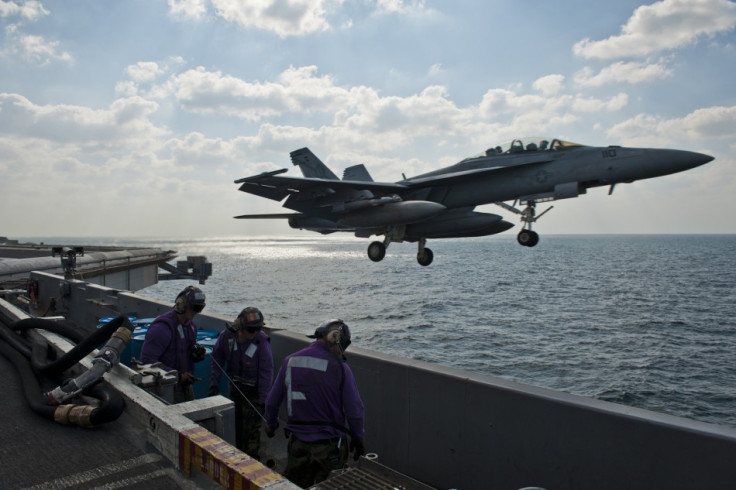Belligerent Iran: Five Possible Fallouts of Strait of Hormuz Standoff

The Strait of Hormuz has become the latest flash point between the West and the "said to-be nuclear capable" Iran.
The 34-mile wide (at its narrowest point) oil transit route holds the key to deciding a new geopolitical equation as major world powers are already taking sides in case of a war.
Britain and France have vociferously backed the U.S. with Britain saying it is just waiting for the signal to commence naval action. French Foreign Minister Alain Juppe has urged other European Union members to go with the U.S. to freeze Iranian bank assets and impose an oil embargo on it.
Britain's move was evident from the comment the country's Defence Secretary Philip Hammond made in Washington on Thursday that Britain will not tolerate closure of the Strait of Hormuz, the Telegraph has reported.
Russia has declared its opposition to any new sanctions against Iran. Russia's Deputy Foreign Minister Gennady Gatilov has said that extra sanctions could be interpreted as means for a regime change in Iran, a BBC report has said.
Iran is no mood to give up and continues its threat to close the oil route in case of fresh sanctions. The country has stepped up military exercises and vigil in the strategic strait and is breathing fire that it would launch a counter-attack.
Over the past week Iran has test-fired its medium range missiles to show the world that it would not remain an idle spectator.
The muscle-flexing by both sides has the potential to ignite a major confrontation in the Persian Gulf and beyond.
Here's what could happen in the event of an all-out stand-off:
Scenario 1
It is highly unlikely that Iran will shut the Strait of Hormuz for long as the Iranian economy is highly dependent on oil exports. As nearly 70 percent of its revenue comes from oil exports, any move to shut the passage would be self-defeating.
On the other hand, U.S. action and Iranian counter-action could catapult oil prices to new highs. With major economies already in the doldrums, this could have a disastrous effect on the global economy.
Scenario 2
Iran's bravado notwithstanding, its true military might could be exposed in the face of U.S. and its allies' action. But Russian support to Iran could add a new dimension.
Scenario 3
The U.S. and the Nato are in a better position to deploy their forces in the Persian Gulf as their troops are winding up operations in Iraq and Afghanistan.
Scenario 4
Also to be watched is Iran's real nuclear capability. How far has its nuclear programme reached? In the event of an open confrontation, will the "nuclear potential" come into play?
Scenario 5
The U.S. and its allies' military action would not be limited to forcing open the Strait of Hormuz. The U.S. may use the opportunity to target Iran's nuclear and other facilities.
© Copyright IBTimes 2025. All rights reserved.





















